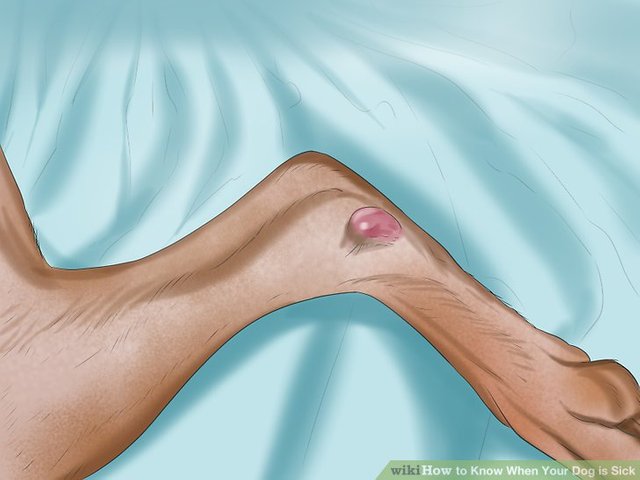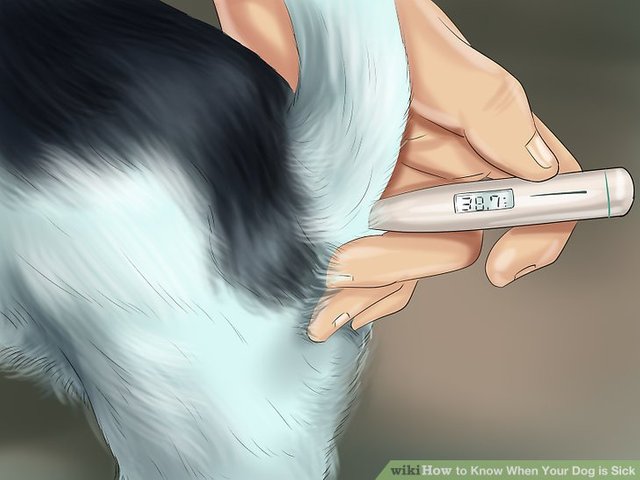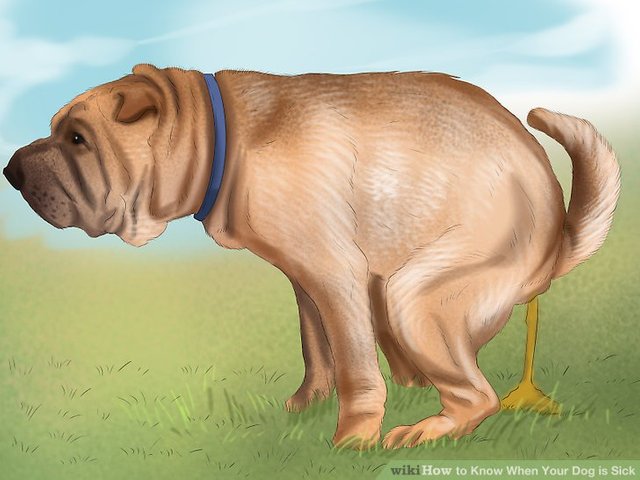Just like their owners, dogs can become ill with anything from a minor virus to something more dangerous with serious complications. Since your pet cannot tell you what’s wrong, you should keep an eye out for certain symptoms. Always consult with your veterinarian if you ever suspect your dog may be ill.

Watch for excessive drooling or bad breath[1]. Excessive drooling or bad breath can be signs that your dog might need some teeth extracted. In order to prevent many dental problems, try to train your dog so that he allows you to brush his teeth. Look for the following symptoms in your dog that might indicate a dental problem:
Watch to see if your dog is eating less.
Notice if your dog is sensitive to you touching his muzzle.
You may also visibly notice your dog having trouble chewing.[2]

Keep a close eye on any sores or lumps. Dogs can develop ingrown hairs, cysts, and other skin blemishes, so not every small lump or bump is an immediate cause for concern. However, the following symptoms should be seen by a professional.[7]
Lumps growing in size.[8]
Lumps becoming deeply attached to tissues.
Oozing or bleeding sores.

Take your dog’s temperature. Canine’s can run fevers just like humans can. If your dog has a fever, especially in conjunction with other symptoms, visit your vet as soon as you are able.[9]
A temperature of 103 is high. Take your dog to the vet as soon as possible.
A temperature of 104.5 requires immediate medical attention.

Pay special attention to digestive upsets. Vomiting or diarrhea is a reason for concern with your dog.[15] These symptoms can be a sign of anything from swallowing a sharp object to ulcers to parasites.[16]
Single instances of vomiting or diarrhea are not necessarily a cause for concern.
Repeated instances,especially lasting more than twenty-four hours,require a vet.[17]
Blood, in either vomit or diarrhea, can be a serious symptom and needs treatment as soon as possible.[18]
Hi! I am a robot. I just upvoted you! I found similar content that readers might be interested in:
https://www.wikihow.com/Know-When-Your-Dog-is-Sick
Downvoting a post can decrease pending rewards and make it less visible. Common reasons:
Submit
hi my familly
Downvoting a post can decrease pending rewards and make it less visible. Common reasons:
Submit